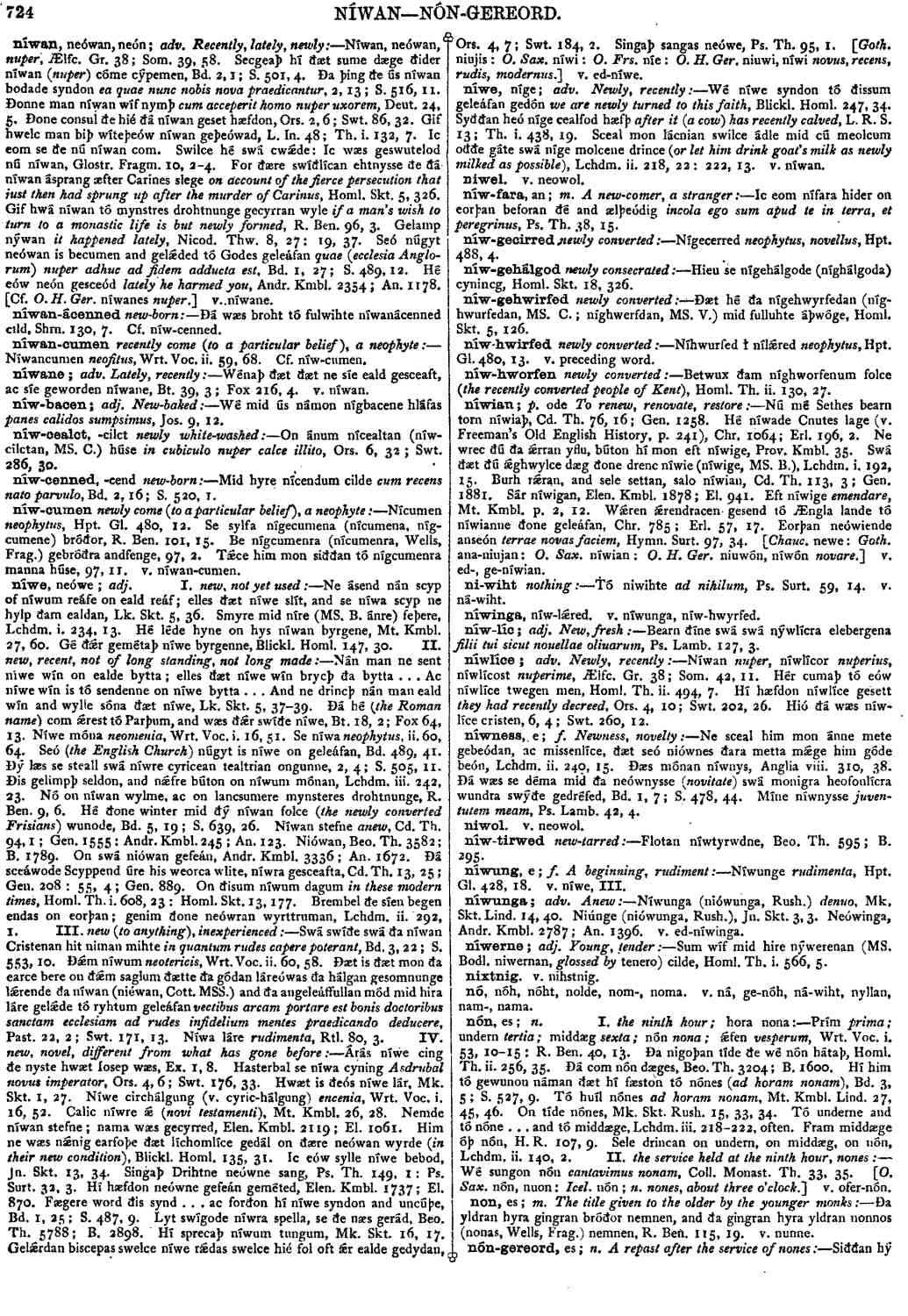níwan
- adverb
-
Níwan, neówan,
nuper;
- Ælfc. Gr. 38 ;
- Som. 39, 58.
-
Secgeaþ hí ðæt sume dæge ðider níwan (
nuper
)cóme cýpemen,
- Bd. 2, 1 ;
- S. 501, 4.
-
Ða þing ðe ús níwan bodade syndon
ea quae nunc nobis nova praedicantur,
- 2, 13 ;
- S. 516, 11.
-
Ðonne man níwan wíf nymþ
cum acceperit homo nuper uxorem,
- Deut. 24, 5 .
-
Ðone consul ðe hié ðá níwan geset hæfdon,
- Ors. 2, 6 ;
- Swt. 86, 32.
-
Gif hwelc man biþ wíteþeów níwan geþeówad,
- L. In. 48 ;
- Th. i. 132, 7.
-
Ic eom se ðe nú níwan com. Swilce hé swá cwǽde : Ic wæs geswutelod nú níwan,
- Glostr. Fragm. 50, 2-4.
-
For ðære swíðlícan ehtnysse ðe ðá níwan ásprang æfter Carines slege
on account of the fierce persecution that just then had sprung up after the murder of Carinus,
- Homl. Skt. 5, 326.
-
Gif hwá níwan tó mynstres drohtnunge gecyrran wyle
if a man's wish to turn to a monastic life is but newly formed,
- R. Ben. 96, 3.
-
Gelamp nýwan
it happened lately,
- Nicod. Thw. 8, 27 : 19, 37.
-
Seó núgyt neówan is becumen and gelǽded tó Godes geleáfan
quae (ecclesia Anglorum) nuper adhuc ad fidem adducta est,
- Bd. 1, 27 ;
- S. 489, 12.
-
Hé eów neón gesceód
lately he harmed you,
- Andr. Kmbl. 2354 ;
- An. 1178.
Bosworth, Joseph. “níwan.” In An Anglo-Saxon Dictionary Online, edited by Thomas Northcote Toller, Christ Sean, and Ondřej Tichy. Prague: Faculty of Arts, Charles University, 2014. https://bosworthtoller.com/23824.
Checked: 1